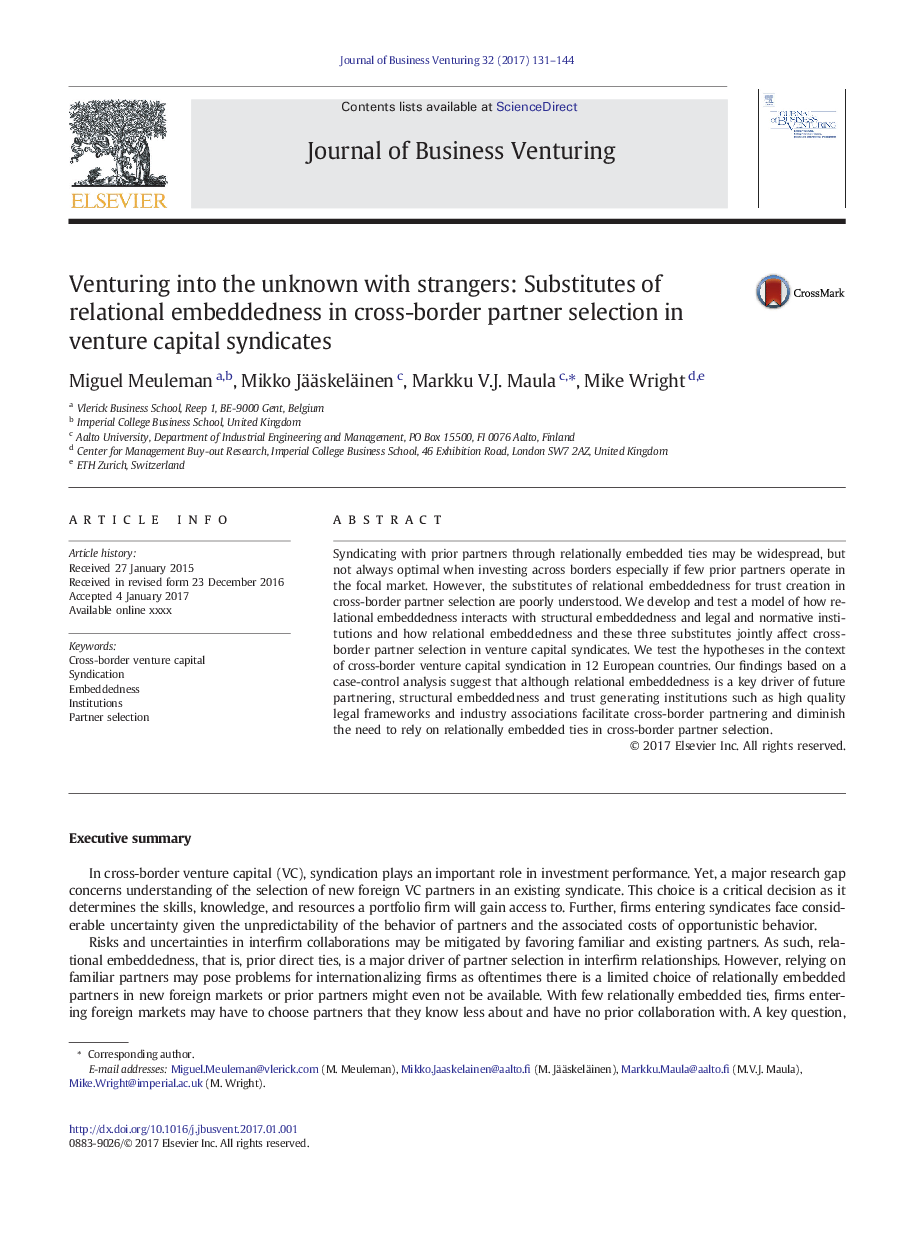ترجمه فارسی عنوان مقاله
مشارکت با ناشناخته ها با غریبه ها: جایگزینی تعامل نسبی در انتخاب شرکای مرزی در سندیکاهای سرمایه گذاری
عنوان انگلیسی
Venturing into the unknown with strangers: Substitutes of relational embeddedness in cross-border partner selection in venture capital syndicates
| کد مقاله | سال انتشار | تعداد صفحات مقاله انگلیسی |
|---|---|---|
| 136889 | 2017 | 14 صفحه PDF |
منبع

Publisher : Elsevier - Science Direct (الزویر - ساینس دایرکت)
Journal : Journal of Business Venturing, Volume 32, Issue 2, March 2017, Pages 131-144
ترجمه کلمات کلیدی
سرمایه گذاری مرزی، سندیکا، پیوستگی، موسسات، انتخاب شریک،
کلمات کلیدی انگلیسی
Cross-border venture capital; Syndication; Embeddedness; Institutions; Partner selection;
ترجمه چکیده
سندیکا کردن با شرکای قبلی از طریق روابط مرتبط با رابطه، ممکن است گسترده باشد، اما زمانی که در سرتاسر مرزها سرمایه گذاری می شود، همیشه بهینه نمی شود، مخصوصا اگر تعداد کمی از شرکای قبلی در بازار کانونی کار کنند. با این حال، جایگزین تعامل نسبی برای ایجاد اعتماد در انتخاب شرکای مرزی، درک نمی شود. ما یک مدل از چگونگی تعامل سازنده ارتباط با تعامل ساختاری و نهادهای قانونی و هنجاری و نحوه تعامل نسبی و این سه جایگزین به طور مشترک بر انتخاب شرکای بین المللی در سندیکاهای سرمایه گذاری تاثیر می گذاریم. فرضیه های ما در زمینه سندیکای سرمایه گذاری بین المللی در 12 کشور اروپایی مورد آزمون قرار می گیرد. یافته های ما بر مبنای تجزیه و تحلیل شاهد حاکی از آن است که اگرچه تعبیه ارتباطی یک ریسک کلیدی در همکاری های آینده است، درون سازمانی ساختاری و موسسات اعتماد ایجاد شده مانند چارچوب قانونی با کیفیت بالا و انجمن های صنفی، همکاری های بین مرزی را تسهیل می کنند و نیاز به وابستگی روابط تعبیه شده در انتخاب شرکای مرزی.

